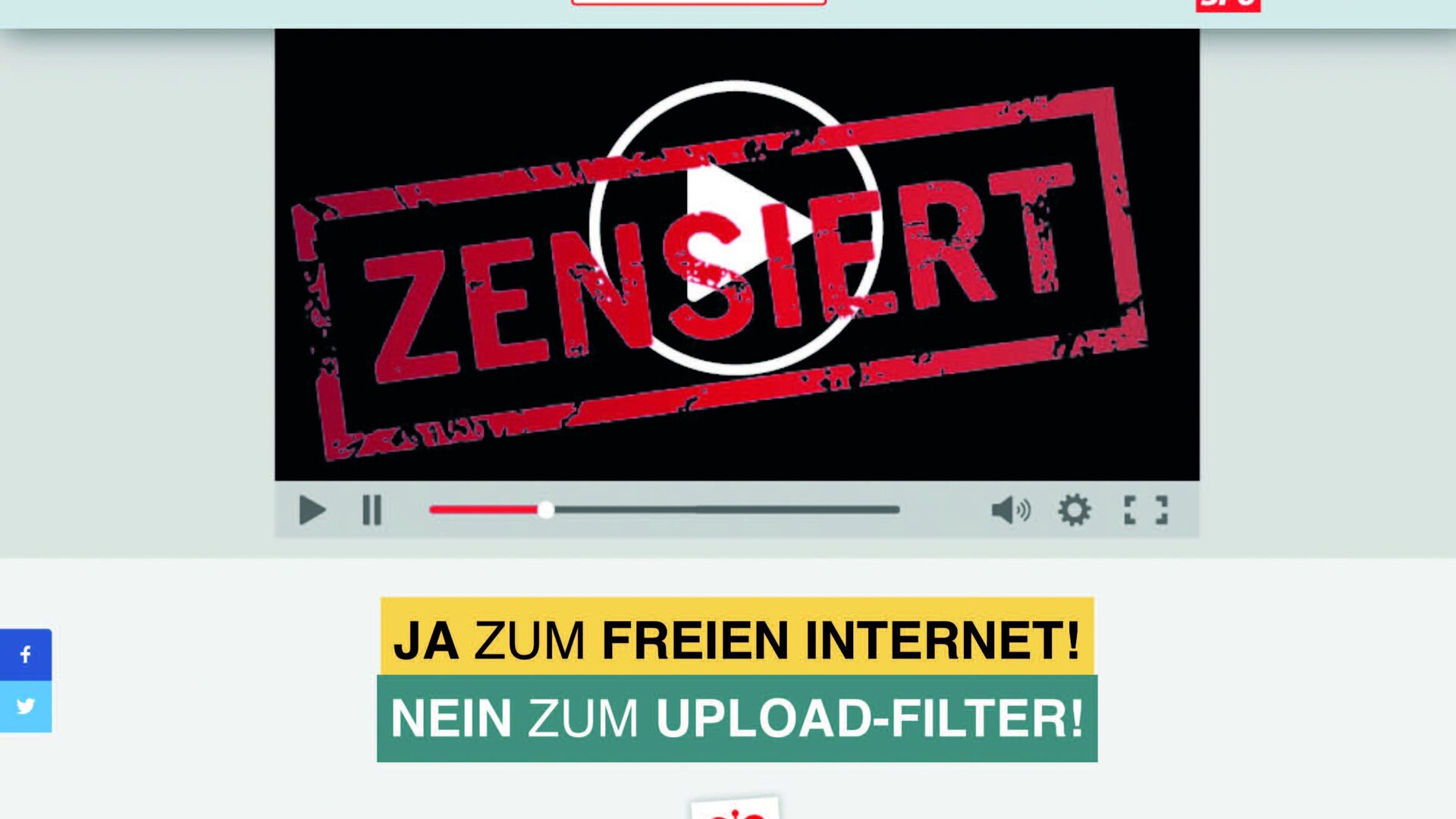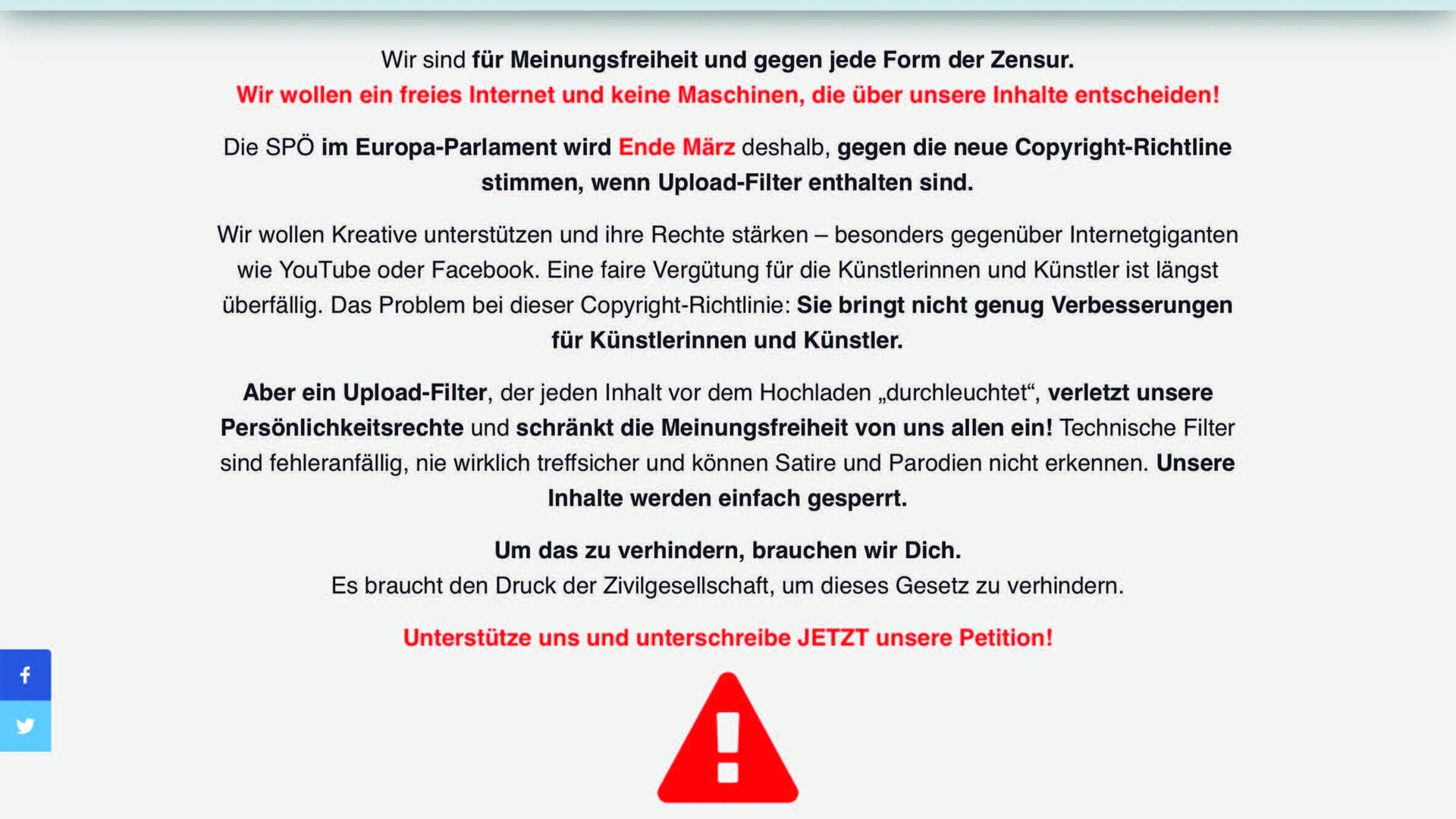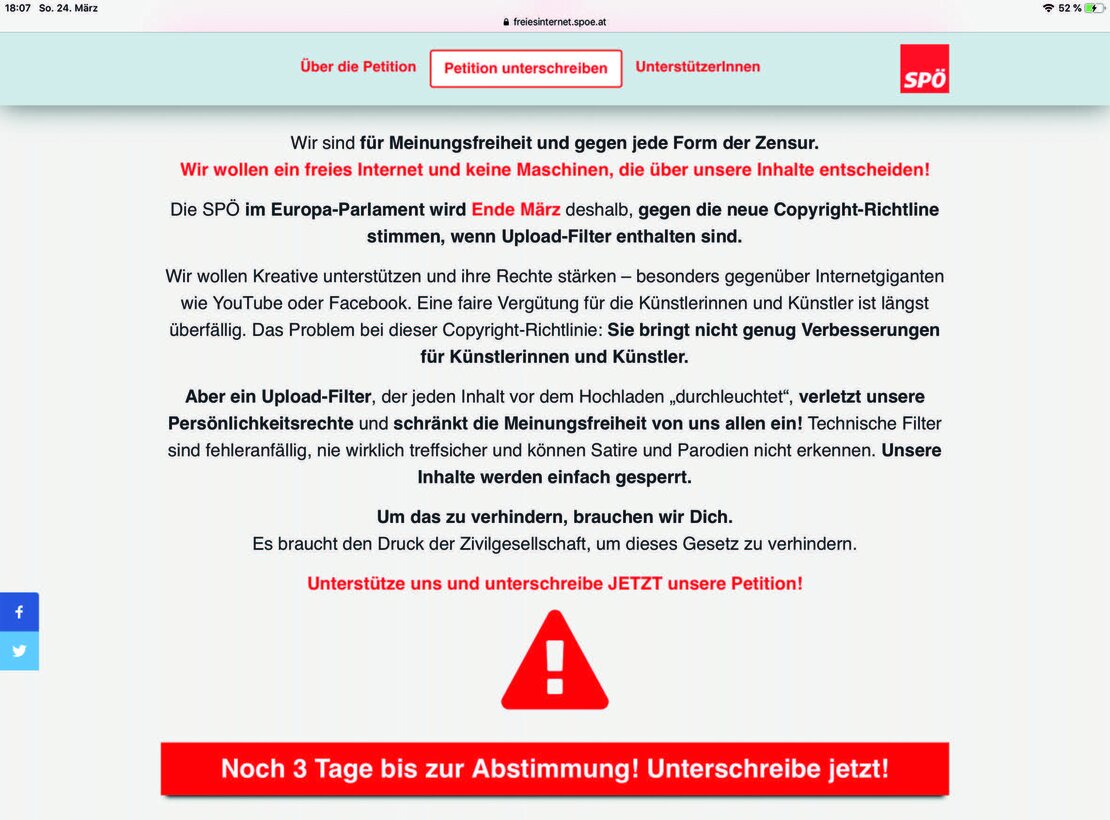Basically, it's very simple. Franz is a winegrower and makes an incredibly good red wine that sells like hot cakes. And Franz is no fool and manages to increase his production without compromising quality. Everyone who wants a bottle of it pays for it - what else. Until one day the guys from the “rotweinplattform.trink” visit him and want to take a lot of bottles from hin, but are not willing to pay anything or if at all a very little amount, because Franz would profit of them by reaching a bigger audience, and everybody would know him. But Franz doesn’t agree, therefore the guys simply steal a few bottles and sell them, of course with great success. Franz is therefore complaining and want’s to quit producing wine, because he isn’t gaining any money from them, but the guys from “rotweinplattform.trink” now claim it’s his fault that nobody will be able to drink red wine from now on. They say it’s everybody’s right to drink red wine, only people like Franz are against it and they demand freedom for red wine and all red wine drinkers.
The author of these lines has limited this complex subject, which is discussed at the moment, to red wine, because interestingly the SPÖ had put a petition for free internet and against upload filters on the net (maybe it’s still online: freiesinternet.spoe.at.). And maybe once again they were on the wrong track (see screenshot). Of course our example about winegrower Franz might be a bit misleading, because red wine can’t be distributed digitally, for a sufficient example the guys from the red wine platform should be able to offer the red wine on their website for free without any permission from Franz, and we all should have the possibility to download it. No bad idea, if that would mean I could simply fax money in the future.
Seriously speaking, it seems that even politicians don’t want to understand that neither the freedom of the Internet is at stake nor the threat of censorship by the Internet giants. Walter Gröbchen describes the situation in his posting as follows: "Now everyone is talking about it again: the free Internet. It should be abolished, destroyed, killed. Allegedly. Almost as a collateral damage. Because a few politicians at EU level dare to take action against the most obvious constructional flaws of new business on the net - the profit rip-off of creative third-party services, the foolhardy (and often blackmailing) exploitation of mono- or oligopolistic power structures (only recently Google has again been sentenced to an EU fine of 1,49 billion euros for abuse of a dominant market position), the compliant or even 'only' forced data blocking or, vice versa, disclosure to intelligence agencies and governments (from China to the US), the uninhibited capitalist maximization of profits by exploiting every loophole, reaction delay and disagreement. e.g. the EU countries. We all pay fair taxes (even if we often see them as unfair), the global giants laugh about it. And they laugh about us, who feed them with content free of charge and make them grow fat and strong. So why are we not forcing our politicians to put an end to this unsustainable state of affairs?”.
Every school ball and even the SPÖ has to transmit the artists and ideally the playlists to the AKM, even all radio stations do that, because without an AKM list there is no broadcast approval. For whatever reason, although a part of the audience is aware that a CD or LP has to be bought, they believe that downloading music, software films and so on should be free of charge, because otherwise the freedom of the internet is at stake. The only one with freedom is the artist, the creator of the work himself, who can decide whether to sell his work or distribute it for free. Continuing Walter Gröbchen's posting: "Yes, I share the concern regarding 'upload filters'. But they already exist (for example as Content ID on YouTube). YouTube is forced to license content (the contracts with AKM, GEMA etc. are trade secrets ...).
The fact that even internet giants like YouTube have to abide by laws was shown by the dispute with GEMA in Germany. Music videos were banned from YouTube for a long time until the company reached an agreement with GEMA in 2016 after a multi-institutional process. The YouTube platform, which has belonged to Google for quite a time now, has paid retroactively until 2009, but there is silence about the amount and the future agreement. For the vote in the EU Parliament, amendments have been tabled which demand the deletion of Article 17 (the former Article 13), which would be the upload filters. Because, and this is where things finally get complicated, a question of principle is currently before the European Court of Justice, which is crucial precisely to this provision. Is Google, and therefore its subsidiary YouTube, a service provider or, in the broadest sense, a medium. There are all kinds of consequences connected with this in terms of responsibility for content that is put online. In Germany it’s not as uncomplicated as it is here in Austria, regarding service providers.
"My instinct says: the data hoarders and profit machines of the present and, foreseeable, also of the future have little or nothing to do with a 'free Internet'", Walter Gröbchen continues, and: "They are, similar to the #DSGVO, primarily in the sights of an independent and (in the best sense of the word) idiosyncratic European policy (and there are probably really few mandataries of any faction who want to and will simply nod off the socially disruptive behaviour of Google & Co.). By the way: I don't like many (often based on misinterpretation) effects of the DSGVO either. Yes, you can be critical of the painstakingly conceived, long and intensively discussed and negotiated and still vague, clumsy or foreseeable bureaucratic measures in details - but it is a movement of political will where the EU has been accused of long periods of immobility".
Well, the moment this article is published, we will all know how the EU Parliament voted - I think and hope that the EU amendment will have passed. Any other outcome would further strengthen the position of the data hoarders and make any discussion on intellectual property protection more than difficult. My last words regarding this subject: Whoever uploads a video to the big video platforms Vimeo (founded 2004) or YouTube (founded 2005) leaves almost all rights to resell or license the content to the operators according to their terms and conditions.


